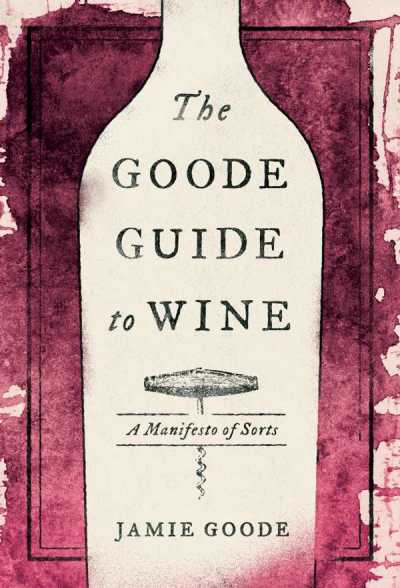It looks like you've stumbled upon a page meant to be read by our code instead of viewed directly. You're probably looking for this page.
Reviewer Andrea Hammer Interviews Jamie Goode, Author of The Goode Guide to Wine

This week, Jaime Goode is here to forgive you for everything you don’t know about wine. The author of several acclaimed books on wine including, most recently, The Goode Guide to Wine, Jamie finds it sad that so many people are embarrassed by their lack of wine knowledge—it’s not like we’re born knowing the difference between Bordeaux, Barolo, and Two Buck Chuck.

The happy fact is that to learn about wine requires hard work in the form of drinking, drinking, and more wine drinking.
Andrea Hammer reviewed The Goode Guide in the September/October issue of Foreword Reviews, and we worked with The University of California Press to connect reviewer and author for this empowering conversation.
Andrea, pull the cork.
What are some suggestions for developing a wine palate?
Taste, taste, and taste. But try to do it critically: Think about the experience. It’s quite useful to discuss your impressions with others, if you can, or to read what others say about the same wine.
What is the best way to become more adventurous when selecting wines?
Personally, I think there is nothing more rewarding than finding some sort of mentor. Perhaps a sales person at a specialist wine shop, who can get to know your preferences and suggest new things.
How can wine lovers and newbies learn the most from wine shop owners and stewards?
I think having a curiosity helps, and just engaging with them, without fear. No one is judging you or examining you—although that’s how people often feel when they come to wine. They feel like they ought to know something. But we all start in the same place, and we are all learning all the time. After all, each new vintage is different!
Can you elaborate on the mysteries, importance, and emphasis on soil in the wine-making process?
Soils have quite an influence on the flavor of wine, but it’s an indirect effect. They alter the way that the grapes grow, and then these differences are amplified and unfolded by the yeasts and bacteria in the winemaking process. It’s all quite mysterious. Climate probably has more effect on the taste of the wine, especially at extremes. But each year the weather is different—climate is just an average—and yet wines from a particular place have similarities that persist year on year.
Why did you start to think that wine-tasting notes can interfere with a satisfying experience?
It’s because in our rush to words we don’t dwell long enough on the actual experience of drinking wine. And because it’s so hard to describe the experience of drinking wine in words, it leaves me quite unsatisfied. Having said this, attempting to describe a wine does focus our experience and helps us to drink more critically.
How do you deal with the limitations of words to describe the sensations of drinking and enjoying wine?
I’m trying not to be lazy and looking to do better every time. But it’s hard. I think the key is to not let words “template” the perception. Really look to see the true personality of the wine. Don’t let the labels define the experience.
If someone wants to learn more but finds the wine world intimidating, what is the best way to begin?
Simply to taste, and be happy to learn a little at a time. Start slowly, take the pressure off, enjoy the experience. The rest will come.
How do you think our present circumstances will impact wine tastings and the industry?
The old trade diary with lots of tastings is dead at the moment. Large consumer events with lots of wineries exhibiting are dead too. It will be a while before they begin again. Maybe we should re-think their effectiveness. Is there a way it can be done better?
Andrea Hammer